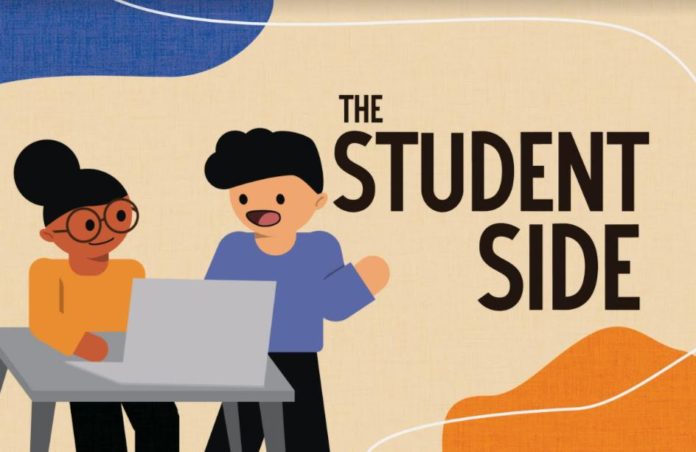
“Oh boy, here he goes with the long-winded ‘don’t cheat’ diatribe. SKIP,” I hear you say.
Fair enough. We’ve all been told since grade school that cheating is not only wrong and a punishable offense, but that it harms us directly by trivializing learning and defeating the purpose of school as a whole.
In short, cheating is more destructive when we get away with it than when we get caught. Even so, there remains a sizable minority, heaven forbid a slim majority, of students who routinely and willfully cheat on their schoolwork. Not only that, but the extent to which some students go to avoid work is so mind-boggling, that if they used half of that effort on their schoolwork, they wouldn’t need to cheat.
The reasons are varied, but the justification is never sufficient. Here’s why. Don’t worry, I’ll keep it short.
As I said, the reasons for cheating vary. Let’s arrange the typical scenarios that inspire cheating into three broad categories: lazy cheating, desperate cheating and vengeful cheating.
None are acceptable, and students move between one category to another depending on factors including the class, the work itself, the teacher, their schedule, etc. However, each of them embodies a different self-destructive habitual mindset that prevents the student from fully benefiting from the class.
First, we’ll discuss lazy cheating, which is the most common. I, myself, am guilty of it more frequently than I’ll admit. Lazy cheating could be copying someone’s homework because you either forgot about it or put it off until the last minute and underestimated the amount of time it would take — even if you could’ve done it yourself.
Lazy cheating alleviates the stress of an assignment by having someone else do it. Lazy cheating may not feel that harmful, especially when the assignment in question is something minor or tedious, which in the moment may seem acceptable, especially if you have more important work to be done. However, that’s the wrong way to think about schoolwork.
All assignments should be treated with the same degree of importance. You may argue that certain assignments hold more weight than others because they have a larger impact on your grades than others; it would be a bad idea, therefore, to place greater importance on something not as significant. Fair enough. However, just because a particular assignment doesn’t weigh as heavily on your grade doesn’t make it less significant to the class.
Students who view school as nothing more than a numbers game to be beaten by any means necessary always end up losing. An A that is earned can stand on its own, but an A that is built on lies will inevitably collapse the instant that cheating resources are unavailable. Or when real life starts knocking and that information from class would’ve been useful rightnow.
Imagine paying money to copy and paste homework answers from Chegg. Lazy cheaters, by their actions, ignore the long-term ramifications of their cheating to succeed in the present. They are effectively the inverse, therefore, of desperate cheaters.
Desperate cheating involves destroying yourself in the present to succeed in the future.
You might think, “Isn’t that the stereotypical model of success? Momentary sacrifice for long-term gain?” The answer is yes, but those who practice desperate cheating place all their focus on the results, rather than the process, and they end up suffering for it.
Desperate cheating is when cheating takes place purely for the grade, rather than for the experience of failing and learning through actually doing the work. It’s quite similar to lazy cheating, with the caveat that you cannot do the work yourself, and instead of seeking out appropriate resources before or after failing, resorting to dishonest means to secure the grade.
Desperate cheaters, unlike lazy cheaters, may value their education immensely, but their fear of failure compromises their ability to perform well or think clearly. A combination of anxiety or a fear of falling behind convinces them to use quick and effective cheating methods, rather than taking the time to seek help from professors and professional resources.
Should this work, the student develops a mindset of perpetual anxiety, wherein the only way to succeed is to ensure success prematurely by cheating, not allowing any chances for failure (and by extension learning).
Desperate and lazy cheating are both difficult habits to break; however, students often display some degree of resentment over their actions because they know it comes from within. For that reason, habitual vengeful cheating is the most destructive and the hardest to overcome.
Vengeful cheating is done purely out of disdain or contempt for a professor or peer.
Students who practice vengeful cheating usually dislike a class or its teacher so much that they devote as much effort as possible into caring about it as little as possible. This innate animosity is by its nature visible in classroom responses or the lack thereof, and so vengeful cheaters are frequently caught — especially if they are repeat offenders. For this reason, they are thankfully the rarest type. Most students who cheat vengefully only do so for a brief time, either once they get caught, or realize that they’re the only ones who suffer for it.
If you ever find yourself tempted to cheat, first ask yourself why you’re doing it. Can you do the work, and you’re just unwilling at the moment? Can you not do the work, and you need to sit down with your professor or someone else to help learn the material? Or is it something more deeper-seated, that perhaps you need to get off your chest to an advisor or counselor?
Either way, this is to help you understand that, no matter how or why you cheat — even if you don’t get caught — you’re only cheating yourself.
For questions/comments about this story tweet @TheWhitOnline.





